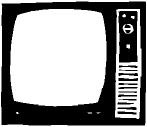I’VE HEARD MANY who revere Harper’s and The Atlantic from afar, and even a few folks who read them, confuse these two pillars of the magazine tradition. Anyone who confuses them now surely ain’t reading ’em.
What the two share is antiquity and serious intentions—two difficult crosses to bear in the media bazaar. At 152 years, Harper’s is the nation’s oldest continuously published magazine, and The Atlantic is just seven years younger. They’re the two monthlies that have managed to stay serious and retain more than cult readerships, holding the dicey high ground between the esoteric political and literary journals and the fashion/lifestyle glossies. George dies, Vanity Fair pimps, no one talks about Tina Brown’s new mag, but Harper’s and The Atlantic keep arching their eyebrows and stroking their chins.
Ideologically, however, they’re probably farther apart than ever— opposite poles in a new culture war within the elite. In this, they reflect both the Bush Doctrine—”If you’re not with us, you’re against us”—and their editors’ obsessions. Lewis Lapham, who’s edited Harper’s for most of the last three decades, is the furious prophet of against, inveighing against American greed, bellicosity, complacency, exceptionalism—pretty much everything about today’s America, including the president who personifies these qualities.
In the opposite corner: Michael Kelly, who’s edited The Atlantic for a little over two years and staked a claim, ahead of a legion of other claimants, as the voice of for: for the heartland, for the war, for resurgent American values and power. Kelly’s a fascinating journalistic case. He sent superb Gulf War dispatches to The New Republic and wrote for all the top brands—The Wall Street Journal, The New York Times, The New Yorker, The Washington Post—quickly morphing from ace reporter to one of the fastest opinion slingers in the Beltway. He became notorious as the most obsessive Clinton basher in a crowded field, so pugnacious and moralistic he sometimes recalled another Irish-Catholic opinion slinger, raised in D.C., who exalts the heartland from afar: Pat Buchanan, minus the bigotry. With Clinton gone, Kelly has turned, almost as vehemently, on another easy target, the “reactionary left-liberal crowd” and “phony pacifists” (to quote Kelly’s recent Washington Post columns, which The Seattle Times often runs).
Kelly left editing the inner-Beltway National Journal to edit The Atlantic after the New York real-estate tycoon who owned it sold it to a Washington, D.C., real-estate tycoon. (Surely some Brahmins are spinning in their graves as Boston’s publishing heirloom undergoes such captivities.) Kelly spoke reassuringly to Salon about not drowning the magazine in topical hurly-burly and political ax grinding. He noted “a real fatigue with the endless bombardment of the now, of the moment” in most media, and saluted The Atlantic‘s “140-year-old tradition [of discussing] politics and policy in the broad and deep sense. . . . To try to contort the magazine into a narrowly political or ideological or polemical creature would be a gross mistake and a gross wrong. . . . It’s not as if I have some overwhelming temptation to [editorialize] that I have to resist.”
Those now sound like the words of a man in denial. Under Kelly, The Atlantic has fixed more and more on the politi-cal and the topical, with a sort of neo-neoconservative slant. Cullen Murphy still leads each issue with a classically Atlantic-esque bit of scholarly whimsy, but what follows is a mega-op-ed page (or, in the January issue, 10 pages) called “The Agenda.” Kelly starts off, explaining how George W. is leading “a renaissance of liberalism.” Three pieces follow echo- ing Kelly’s essential message—that America’s full of grit and the Left’s full of shit—by David Brooks, a Kelly hire and veteran of The Weekly Standard and WSJ editorial page; Jonathan Rauch; and the ubiquitous conservative jurist/author Richard A. Posner. Blink, and you’d think Kelly wrote these, too. Even the new house funnyman— the premier conservative satirist, P.J. O’Rourke—echoes the theme.
The other “Agenda” pieces—James Fallows forecasting political fallout from the “War on Terrorism” and ex-FCC chair Reed Hundt on terror-proofing the Internet—escape the ideological net but still come from deep inside the Beltway. Even January’s foreign reports aren’t the sort of prescient eye-openers from unexpected places that were Atlantic hallmarks; they’re familiar political score counting, on Russia’s Putin and Britain’s Tories. Any policy wonks still unsated get a 19-page package on “The Hard Questions” of combating terrorism. This includes a terrific essay by Benjamin Schwarz and Christopher Layne on how the United States must renounce being “the only superpower” to survive. But the accumulation starts to seem not only wonkish but also dated.
Even the long (and that still means long) feature, on the crisis of nuns in today’s church, shows a Catholic editor’s stamp. It’s interesting, at first, to see a strong editor infuse a publication, but I can’t help missing The Atlantic that dared to be dull, lofty, stuffy, unpredictable, and brilliant by turns. Kelly’s reined in the grand old girl’s meanderings. I just hope he doesn’t choke her.
Eric Scigliano’s media column appears every other week.








